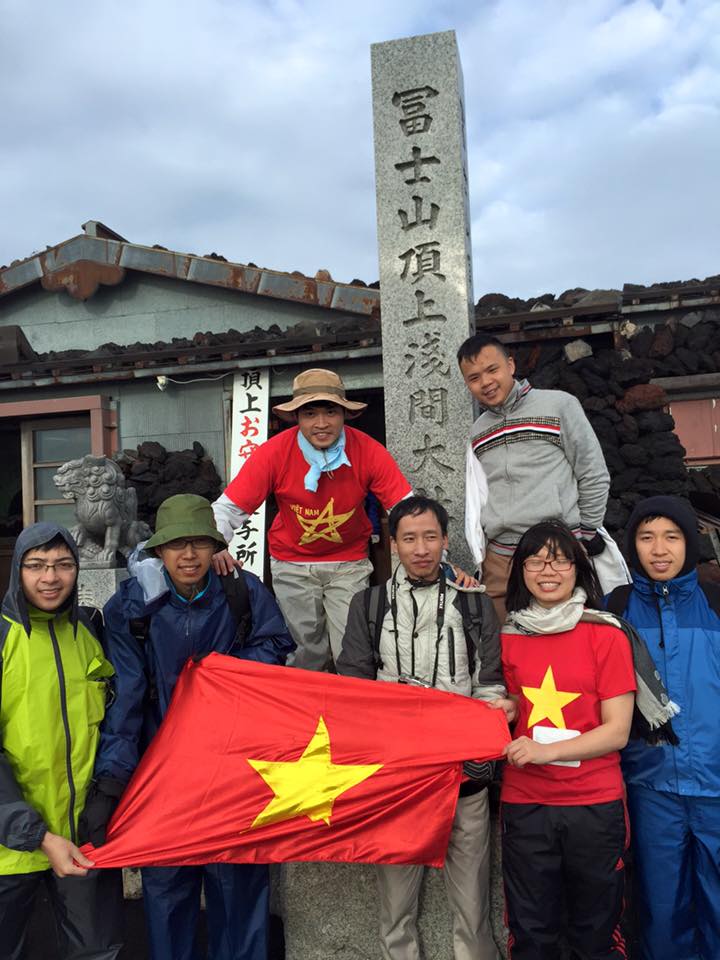Hoang Minh Nguyen’s interest in Japan began, like so many of us, with manga. Though he grew up reading manga in his native Vietnamese, he was motivated enough to study Japanese language at university, along with IT. After graduating, he worked as an Android developer in Vietnam for a bit, but when the opportunity arose to work for a game company in Kyoto, he jumped at the chance.
Hoang stayed at that company for about two years, working as a game developer, and enjoying the beauty of Kyoto. He was so inspired by the natural scenery and traditional architecture that he decided to take up photography. Although life in Kyoto was peaceful, he soon felt the pull of the bright lights and hustle of Tokyo.
Now he has been working as a server engineer at Mobilus Corporation, which offers a variety of tech and chat services, for about two years. The work is interesting, and though he works mostly on solo projects, he values his relationships with his coworkers. His work friends were especially helpful in showing him the ropes when he first joined the company.
One aspect of Japanese working culture that Hoang particularly finds impressive is the chourei (朝礼), or daily morning meeting. Many Japanese companies traditionally start off the day with a brief all-staff meeting, where everyone checks in on what they’ve been doing, and what they’re up to next. “It’s a way to support others and find out about other teams’ issues,” Hoang explained, noting that this practice is not usually done in Vietnam.
Since Hoang studied Japanese language at university, I wondered if his transition to Japanese life had gone smoothly. The Japanese Language Proficiency Test (JLPT) is a multiple-choice written exam that includes five levels, with Level N5 being the lowest qualification, and N1 being the highest. Hoang had obtained N3 level before he came to Japan, but he was worried that it wasn’t enough.

Indeed, he did have some trouble understanding daily conversation, at first. He recommends at least JLPT level N2 for work, if you can get it. It really depends on the type of business you’re interested in, though, since “developers and programmers don’t usually deal directly with customers, and perfect communication isn’t a priority. Someone seeking a job in sales, for example, probably would require N1 to be successful,” he explained.
He remembers a difficulty unrelated to the language barrier that arose when he first visited a Japanese bank. In order to open an account, he had to provide a Japanese phone number. So, he trooped off to register for a phone number… where he found he needed to provide his bank account information in order to get a phone!
Hoang was finally able to solve the problem by using his Vietnamese credit card to purchase a phone, highlighting the virtues of patience and flexibility that can be crucial when moving to a new country. Although it was frustrating at the time, now it’s something he laughs about.
Outside of the office, Hoang loves nature, especially the mountains, and has started hiking in his free time. Though he loved hiking in Vietnam, getting to the mountains and back home was often a long and troublesome journey.

One great point about Japan is the fantastic public transportation, and the proximity of nature to the cities. You can hop on a train and ride almost directly to the base of a mountain, and then after your hike, you can grab a drink from a vending machine, sit back and relax on the ride back to the city.
His advice for those interested in working in Japan? Hoang recommends developing an interest in Japanese pop culture, like samurai movies or manga, as a way to break the ice and make new friends. Hoang is thoroughly enjoying his life here, and plans to stay for the foreseeable future.










